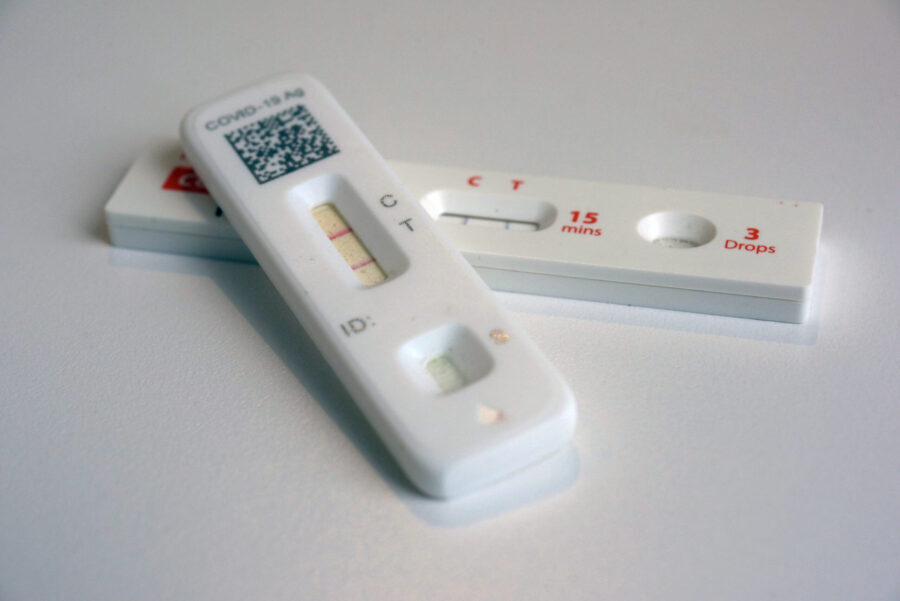How To Talk To Your Children About Coronavirus
Mar 10, 2020, 10:33 AM | Updated: 10:41 am

How to talk to your children about coronavirus. (Shutterstock)
(Shutterstock)
(CNN) — Talking about the coronavirus is hard enough when you’re an adult. The information, numbers and advice concerning the outbreak seem to shift by the day, and the abstract nature of the threat can invite plenty of fear and uncertainty.
However, if everyone is talking about the coronavirus, your children are definitely listening. Here is some expert advice on how to start this important conversation, and keep your child safe and reassured.
1. Don’t wait until they come to you
Even the most scrupulous and watchful parent or guardian can’t keep children from hearing about something as widely discussed as the coronavirus. And trust the experts: Your kids already know. “The chances of a child, of any age, to not have heard about this is really low,” says Robin Gurwitch, PhD, a psychologist and professor at Duke University.
“We don’t always know where children learn things from. It could be from teachers or older students at school, and any child with a social media footprint or access to media in any way has definitely picked up something.”
Getting ahead of the conversation, then, is essential, says David Schonfeld, a developmental behavioral pediatrician and member of the American Academy of Pediatrics Council on Disaster Preparedness. “Kids can misinterpret things, they can overgeneralize and believe misinformation.”
In fact, Schonfeld says, ignoring the conversation can cause more harm than good. “You can’t count on children to bring up difficult topics. If you ignore the subject, they may think the discussion is inappropriate or naughty or upsetting. So you need to present yourself as a source of information and let them know they can come to you.”
2. Ask questions
Of course, every parent or guardian wants to reassure children. But, as Schonfeld says, “You can’t reassure people until you find out what they’re worried about.” Below are some lines and questions that he and Gurwitch suggested to open the conversation:
- “There’s been a lot of talk about the coronavirus. Tell me what you’ve heard about it.”
- “What do you think about this?
- “How does it make you feel?”
- “What questions do you have?”
“Asking questions lets you know where they’re coming from,” says Gurwitch. “It allows us to correct any misinformation, clarify points and know where we want to enter in to the conversation.”
3. Keep information simple and useful
“There is so much information out there,” says Schonfeld. “What you need to do is filter down the information and distill it to what’s clear, relevant to the individual, and give them what can be used to take immediate action.”
In other words, while you want to be open and communicative with your child, resist the urge to bombard them with every possible headline or piece of information about the outbreak.
Schonfeld also suggests trying to keep the conversation productive and positive. For instance, if you were to bring up vaccines, instead of saying there are no known vaccines, say medical experts are working on trying to develop one.
4. Validate their concerns
There’s no reason to ignore the truth: The idea of an epidemic can inspire anxiety, so resist the urge to wave away any worries your child may have. “It’s important to validate children’s concerns and let them know their feelings are real,” Gurwitch says.
Recognizing these feelings can give children permission to cope with their distress. “There is a tendency to tell children that they shouldn’t be worried,” says Schonfeld. “We should stop telling children that they shouldn’t be worried, and encourage them to explore their feelings.”
5. Tell them what’s being done to keep them safe
“We need to tell them what’s being done. Because you can’t just put it out there without describing a solution,” says Gurwitch. “We want to say, our family is doing this, our country is doing this, and our family is doing this.”
Here are a few other expert suggestions:
- “We know that this is something that people can catch but we also know how to help keep ourselves as safe as possible.”
- “We don’t know everything about this virus, but we’re learning more all the time.”
- “We are making sure we wash our hands well.”
- “We know it’s always good to cover our mouth when we cough or sneeze.”
- “Right now, as much as we want to hug our friends, we may want to fist bump or knock elbows.”
This is also an opportunity, Gurwitch says, to explain to them that not every cough or sneeze means someone is going to get the coronavirus. Not only can this cut down on anxiety, it can also keep kids from expressing prejudice or fear toward other people.
6. Empower them to make healthy choices with you
After you’ve told your child what is being done to keep them safe, it’s time to give them a chance to take their safety into their own hands — to whatever level is age-appropriate.
“Nobody likes to feel powerless, and one thing kids can learn from a very young age is that their health is their health,” says Schonfeld. He suggests letting them design their own hand washing routine, or encouraging them to ask questions about why certain safety measures are put in place and how they can make them a part of their own habits. “There’s always some decision a child can make that can give them a sense of partial control,” he says.
This collaborative spirit can be expanded past virus prevention. “It’s important to include kids in all of these preparations,” says Gurwitch. “If you are preparing in case you need to stay in your house for a bit, ask your child what they would like from the store. Remember to include things that would keep your child occupied and active.”
7. Keep yourself informed so you can be a trustworthy source
All of this would be much easier if the adults knew exactly what was going on and exactly what to expect. Unfortunately, with a situation like this, that’s not the case. So it’s imperative to keep yourself well-informed so your child feels comfortable trusting you. Schonfeld says to avoid sharing rumors or sensationalistic information, and to refrain from bringing politics or personal beliefs into the situation. “It’s a good idea to go to the most consistent source of information, like the CDC,” he says.
8. Be compassionate
When we get anxious, we sometimes make bad decisions. We sometimes get cranky. That’s as true for children as it is for adults.
“There’s a few things that happen, doesn’t matter if they’re 4 or 14,” says Gurwitch. “Children may become a little bit more irritable. Young kids may have more temper tantrums or meltdowns, they may become a little more clingy. But they may also have more problems with sleeping, children may have a little bit harder time with concentration and attention.” That could manifest itself in forgetfulness or issues with completing chores or homework.
The important thing, Gurwitch says, is to be patient with them, and stick to normal routines as much as possible.
9. Follow up
This situation is ever-changing, and as time goes on, there may be new information you want to share with your child, or they may have new questions.
“We should check back in as new information comes up,” Gurwitch says. “Being able to have this difficult conversation about coronavirus will set parents up in a very nice way for children to know they can come to their parents or guardians with difficult topics. When children know that we’re willing to talk about something difficult, they will talk to us about something difficult.”
That’s why it’s so important to establish trust and openness early on. “Parents do become trusted sources when they are trustworthy; when they are honest and open and forthcoming,” Schonfeld says. “But it’s not just something you can establish in a day. It has to be a pattern.”
And it all starts by being brave enough to bring it up.











